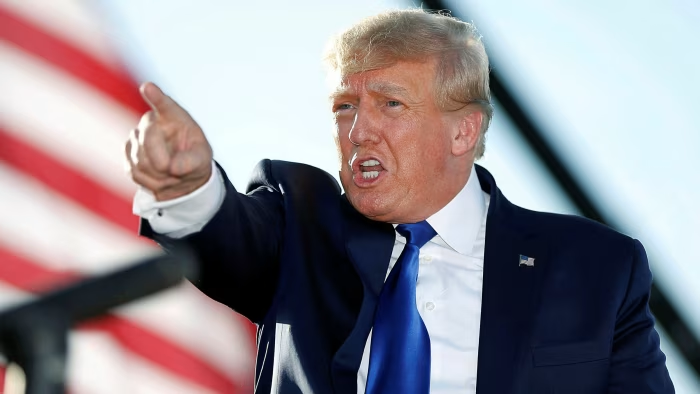More than 85 climate experts slam Energy Department greenhouse gas report as “not scientifically credible”

An international coalition of over 85 climate scientists has released a 439-page rebuttal to a Trump administration Energy Department report, accusing it of failing to “adequately represent the current scientific understanding of climate change” and claiming it “exhibits pervasive problems” by distorting research and selectively using data.
The Department of Energy’s 151-page publication, A Critical Review of Impacts of Greenhouse Gas Emissions on the U.S. Climate, was drafted by five writers chosen directly by Energy Secretary Chris Wright, a former fossil fuel executive. It controversially asserted that “carbon dioxide-induced warming appears to be less damaging economically than commonly believed,” and further suggested that “aggressive mitigation strategies” to cut greenhouse gas emissions “could be more harmful than beneficial” — language that echoes oil and gas industry positions.
“Climate change is real, and it deserves attention. But it is not the greatest threat facing humanity,” Wright said when defending the document and its conclusions.
In August, environmental organizations and independent researchers filed a lawsuit against the department, arguing that the report’s preparation process sidestepped transparency laws. This latest response from the scientific community is part of a wider push to challenge what many researchers have called “a mockery of science.”
“Climate science is probably one of the most robust and scrutinized scientific fields in the history of science because of the economic implications,” said Andrew Dessler, who directs the Texas Center for Extreme Weather at Texas A&M University. He said the DOE document amounted to an insult to decades of climate research.
Dessler voiced his frustration online and quickly realized he was far from alone. “I can’t tell you how many people looked at this and agreed with me that this was a mockery and we needed to respond to it,” he told CBS News.
Within weeks, Dessler brought together more than 85 climate experts from universities across the United States, Europe, Asia, Australia, and Canada. Their independent review concluded the DOE’s analysis was “full of errors,” “biased,” and “not fit to inform policy.” They submitted their findings during the DOE’s 30-day public comment period. By September 1, over 2,300 comments had been filed.
“We have no idea what they’re gonna do with the comments,” Dessler said. “They’re never going to convince people that carbon dioxide isn’t important, but what they want to do is create doubt.”
Concerns extend beyond Dessler’s group. The American Meteorological Society issued its own assessment, identifying “five foundational flaws” that it argued “places the report at odds with scientific principles and practices.”
Much of the 439-page response focuses on the DOE report’s repeated missteps, which Dessler described as relying on “selectively” cited research. “How can you provide a respectable view of science when you don’t know what the literature says, you’re not reading it, you’re not citing it…and you’re not giving the right context,” he said.
Critics argue the DOE document reflects a broader strategy within the Trump administration to assemble selective panels that release politically useful reports to justify policy.
“It’s clear that this administration wants to take control, at the political level, of the scientific process of the government,” said Dr. John Balbus, formerly Deputy Assistant Secretary for Climate Change and Health Equity at the Department of Health and Human Services.
Balbus compared the climate report to a similar trend at HHS concerning vaccines, where political appointees leaned on fringe claims to argue that vaccines do more harm than good. “Which is a ludicrous and completely unsubstantiated assertion,” he said.
Despite mass firings of scientists across federal agencies during Trump’s presidency, many researchers have regrouped outside government to mount coordinated responses to what they see as deliberate misinformation.
Just last month, several major health organizations — including the American Academy of Pediatrics — released their own guidance on COVID-19 vaccines that contradicted the CDC’s revised recommendations.
In May, after President Trump dismissed 400 scientists working on the nation’s quadrennial climate assessment, independent scientific groups announced they would publish a special collection of studies to preserve access to the data.
Meanwhile, federal employees still inside agencies have taken personal risks to speak out. Some have signed open letters to Congress warning about policy shifts, including staffers from HHS and the Environmental Protection Agency, both of which have reportedly retaliated against dissenters.
“When you see nearly a thousand public servants risking their livelihoods to alert the public that senior officials cannot be trusted, that is a clear warning,” Balbus said. He believes these efforts will continue as long as those inside and outside government are willing to push back against misinformation.



